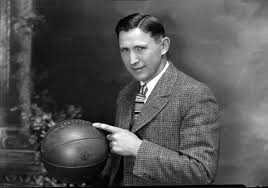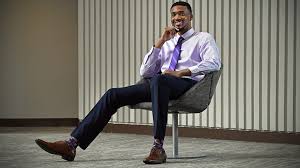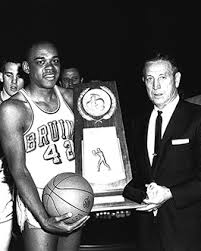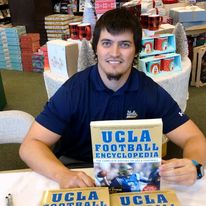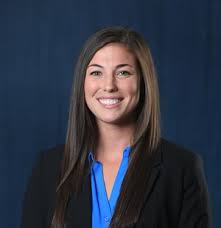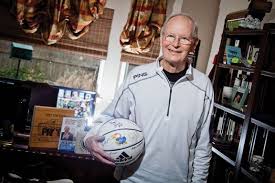The NBA Finals date back to 1947 (when they were known as the Basketball Association of America Finals) and the very 1st NCAA tourney was held in 1939. Olympic basketball competition is even older: it debuted as a demonstration event in 1904 and the men’s version became a medal sport in 1936, with the women finally getting their chance to go for the gold in 1976. The United States has dominated Olympic basketball competition from the start: the men have won 15 gold medals in the 18 tournaments they have participated in during the past 84 years, while the women have won 8 gold medals in the 10 tournaments in which they have competed during the past 44 years. Those of you who were looking forward to the 2020 Olympics opening ceremonies in Tokyo on July 24, 2020 will have to wait an extra 364 days, as the coronavirus caused a postponement until July 23, 2021. Due to the absence of college basketball since mid-March, HoopsHD’s Jon Teitel decided to fill the void by trying to interview as many prior Olympic players/coaches as possible so that you have something to read this summer while not watching the Summer Games. We continue our coverage by chatting with Blair Kerkhoff, author of “Phog Allen: The Father of Basketball Coaching”, about Phog winning an NCAA title and gold medal in 1952. Today marks the 46th anniversary of Phog’s passing so we are proud to honor his memory.
Allen was a child when basketball was invented by Dr. James Naismith, and after Naismith encouraged him to enroll at Kansas in 1904 Allen ended up playing for him: what kind of relationship did these 2 legends have? Phog played basketball on a local athletic team with some of his brothers and was a standout player. Naismith attended 1 of Phog’s games in Kansas City as his reputation was growing. Naismith was not a traditional coach: he oversaw the team but sometimes served as an official. It was a friendship that lasted until Naismith passed away in 1939: they are 2 of the leading figures in the history of the sport and worked in the same building together for decades.
In 1907 Naismith left Kansas and even though Allen was still a student he was named head coach and led his team to a 43-9 record over the next 2 years while winning a pair of conference titles: how on earth was he able to make the transition from player to coach in the middle of his college career? It was not much of a career as a player/student: he was only enrolled for 1 year. Kansas was not his 1st coaching job: he had coached for a year at Baker University before returning to KU.
In 1909 he left the Jayhawks to study medicine at the Central College of Osteopathy in Kansas City, and returned to the university in 1920 to coach all sports while treating injured athletes: how was he able to balance being a doctor with being a coach? The idea of him becoming a doctor originated with him being a coach. He saw injured players who were not treated properly (if at all) and realized that being a doctor would give him an advantage as a coach. He got a job coaching in Missouri and had great success before KU hired him as athletic director in 1919. He coaches football before becoming basketball coach the following year.
He helped get basketball accepted as an official Olympic sport in 1936, served on an NABC committee that created the first postseason basketball tournament in 1939, and with the help of assistant coach Dick Harp he created a pressure man-to-man defense in 1953 that was quickly copied by many other coaches: most people think of him primarily as a coach but does he deserve more credit for being an innovator? The idea of a book on Phog really interested me due to what he accomplished outside of coaching. When I started covering KU basketball in 1989 I began to learn about his life: starting the Kansas Relays, coaching football, creating the NABC, etc. He helped the NCAA tourney stay alive after it was a financial bust in 1939. As good of a coach as he was, he was even more influential off the floor.
In the 1952 NCAA title game he beat St. John’s: what did it mean to him to win a title, and was it extra-special because it allowed him to bring 7 of his players to the Olympics as the Olympic assistant coach? That was absolutely 1 of the perks. When he recruited the Class of 1952 in the late-1940s he told them that if they came to KU they would not only have a chance to win an NCAA title but also to go to the Olympics. I asked Coach Harp if Phog needed an NCAA title to validate his career: he said yes. It pushed him into a level that he would not have reached without it.
He was an assistant coach for team USA at the 1952 Olympics: what did it mean to him to represent his country, and what did it mean to him to win a gold medal? That was huge for him. He would have loved to be head coach but he had to be assistant after losing to Peoria in the Olympic trials. He had also hoped to be Olympic head coach in 1936 but they lost to Utah State in an attempt to be the NCAA representative. He led the funding drive to help Naismith attend those Olympics in Berlin. The 1940/1944 games were put off and Adolph Rupp was head coach in 1948 but the 1952 Olympics were the next-to-last greatest accomplishment of his career. His last great accomplishment was recruiting a talented kid from Philly named Wilt Chamberlain! He knew that his retirement was pending and he wanted to go out on top. It was not just him and Harp on the recruiting trail: he got the local African-American community involved. The sad part is that he never got to coach Wilt due to reaching the mandatory retirement age of 70 in 1955.
He lost a pair of NCAA title games to Indiana coach Branch McCracken in 1940/1953: how big was their rivalry, and where do those rank among the most devastating losses of his career? I do not know if there was a rivalry per se. The 1940 game was a blowout and really changed the direction of the NCAA tourney with the game selling out and proving that it could succeed and rival the NIT in New York City. They needed to attract conference champions and 1940 proved there was interest if you had the right teams in the right place. The 1953 loss was by a single point after KU’s best player BH Born fouled out. It was not 1 of Phog’s best teams but it was 1 of his best coaching jobs. Kansas also claims to be national champ in 1922/1923. By the end of his career he was still viewed as 1 of the top coaches in the history of the game.
He coached college basketball for 50 seasons and retired with the most wins in D-1 history: what made him such a great coach? His early players will tell you that they spent countless hours at practice working on fundamentals and just drilled the heck out of it. His style did evolve throughout the years: he was a really good recruiter and his teams always played great defense. He was able to attract better players and the sport was/is important to Kansas. It was always the main sport on campus and was taken seriously so all great high school players considered going there. He built the program to a place where it became an attraction to top-level recruits.
Several of his players followed in his footsteps to become Hall of Fame coaches themselves (including Dutch Lonborg/Ralph Miller/Adolph Rupp/Dean Smith): how proud was he of his coaching tree, and what made it so successful? Smith was on the 1952 title team and observed a lot, which helped him in his career. John Bunn, Frosty Cox: the list is endless and goes all the way back to the original trunk of the tree in Naismith. The fact that the arenas at Kentucky/North Carolina are both named for guards who rode the bench at Kansas is a testament to Phog. That 1923 team photo is 1 of the most amazing you will ever see: Phog/Rupp/Naismith!

He was inducted into the Basketball Hall of Fame’s inaugural class in 1959 and the College Basketball Hall of Fame’s inaugural class in 2006: when people look back on his career, how do you think that he should be remembered the most? I moved here at age 30 and knew that the Fieldhouse was named for him but did not really know about his contributions. Once I learned more about him I was surprised that he was not more recognized around the nation. Whenever College Gameday comes to town ESPN talks about him, but 30 years ago he was not mentioned among the all-time great coaches. I got to talk to his family/Dean Smith/Clyde Lovellette: it was such a delight to write a book about him. I hope he is recalled for his great career and his great impact on the game.

